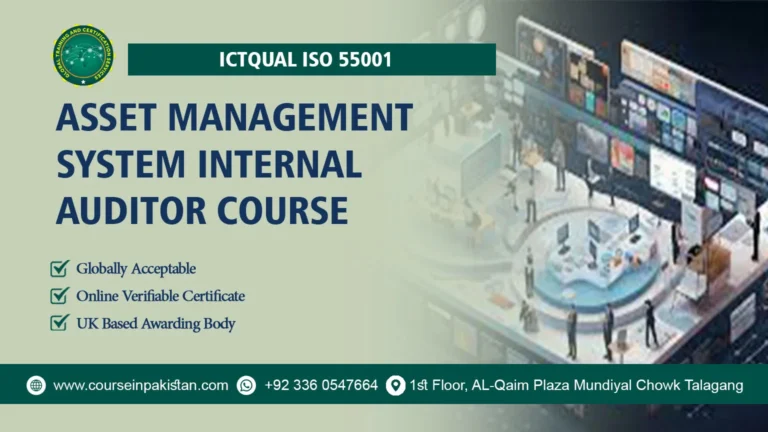
ICTQual Train The Trainer Certificate
Course Introduction
Embarking on a career as a trainer can be incredibly rewarding, allowing you to share your expertise, inspire others, and contribute to professional development in various fields. The Train The Trainer Certificate equips aspiring trainers with essential skills and knowledge to excel in this pivotal role. Whether you’re new to training or seeking to enhance your existing skills, this certificate course provides a comprehensive foundation to succeed in the dynamic world of education and professional development.
Course Overview
The Train The Trainer Certificate is designed to prepare individuals to effectively deliver training sessions, facilitate learning experiences, and assess participant outcomes. It covers fundamental principles of adult learning, instructional design, delivery techniques, and evaluation methods. Participants gain practical insights into creating engaging training materials, managing group dynamics, and adapting content to diverse learner needs.
Course Benefits
- Develop Essential Skills: Acquire core competencies in instructional design, presentation techniques, and facilitation skills essential for effective training delivery.
- Enhance Career Opportunities: Open doors to diverse career paths in corporate training, education, professional development, and consultancy roles.
- Build Confidence: Gain the confidence to engage audiences, handle challenging situations, and create impactful learning experiences.
- Stay Current: Stay abreast of industry trends and best practices in adult education and training methodologies.
- Networking Opportunities: Connect with peers and industry professionals, fostering collaboration and knowledge exchange.
Course Study Units
The Train The Trainer Certificate covers a range of study units, including:
- Module 1: Getting Started
- Module 2: Understanding Training and Facilitation
- Module 3: Gathering Materials
- Module 4: Creating a Lesson Plan
- Module 5: Choosing Activities
- Module 6: Preparing for the Workshop
- Module 7: Getting Off on the Right Foot
- Module 8: Delivery Tips and Tricks
- Module 9: Keeping it Interactive
- Module 10: Dealing With Difficult Participants
- Module 11: Tackling Tough Topics
- Module 12: Wrapping Up
Learning Outcomes
Module 1: Getting Started
- Understand the foundational principles of training and facilitation.
- Define the role and responsibilities of a trainer.
- Set personal and professional goals for the training journey.
Module 2: Understanding Training and Facilitation
- Explain adult learning theories and their application in training sessions.
- Differentiate between training and facilitation roles and techniques.
- Identify key factors that contribute to effective training outcomes.
Module 3: Gathering Materials
- Identify and gather relevant training materials based on training objectives and learner needs.
- Evaluate the quality and relevance of training materials to ensure alignment with learning goals.
- Organize and categorize materials for easy accessibility during training sessions.
Module 4: Creating a Lesson Plan
- Develop a comprehensive lesson plan that includes learning objectives, activities, and assessments.
- Align lesson plans with organizational goals and participant expectations.
- Incorporate instructional design principles to create engaging and structured learning experiences.
Module 5: Choosing Activities
- Select appropriate activities and exercises that promote active learning and participant engagement.
- Modify activities based on participant demographics, learning styles, and skill levels.
- Integrate technology and multimedia tools to enhance activity effectiveness and learning outcomes.
Module 6: Preparing for the Workshop
- Prepare the training environment to optimize participant comfort and engagement.
- Set up audiovisual equipment, materials, and resources needed for smooth workshop delivery.
- Conduct final checks and rehearsals to ensure readiness and confidence in workshop execution.
Module 7: Getting Off on the Right Foot
- Establish rapport and create a positive learning environment from the outset.
- Introduce training objectives, agenda, and expectations clearly to participants.
- Engage participants in icebreaker activities to foster interaction and build a supportive learning community.
Module 8: Delivery Tips and Tricks
- Demonstrate effective verbal and nonverbal communication techniques during training delivery.
- Use voice modulation, body language, and eye contact to enhance engagement and convey enthusiasm.
- Manage time effectively to cover content while allowing for meaningful interaction and reflection.
Module 9: Keeping it Interactive
- Facilitate interactive discussions, group activities, and collaborative learning experiences.
- Encourage participation through questioning techniques, active listening, and feedback mechanisms.
- Adapt facilitation style and pace to maintain participant interest and motivation throughout the session.
Module 10: Dealing With Difficult Participants
- Identify types of difficult participants and their behavior patterns.
- Implement strategies to manage disruptive behavior and maintain a positive learning environment.
- Use conflict resolution techniques to address challenges and promote constructive dialogue.
Module 11: Tackling Tough Topics
- Address sensitive or controversial topics with professionalism and sensitivity.
- Facilitate open and respectful discussions while honoring diverse perspectives.
- Navigate challenging discussions with clarity, empathy, and a focus on learning objectives.
Module 12: Wrapping Up
- Review key learning points and reinforce training objectives with participants.
- Conduct assessments or evaluations to measure participant comprehension and training effectiveness.
- Provide opportunities for reflection, feedback, and action planning to support ongoing learning and application.
These learning outcomes for each module of the Train The Trainer course ensure that participants acquire essential skills and knowledge to effectively design, deliver, and evaluate training sessions. The course empowers trainers to create engaging learning experiences, manage challenging situations, and foster a supportive environment conducive to participant growth and development.
Who is This Course For?
This course is ideal for:
- Professionals aspiring to transition into training roles within their current organization or industry.
- New trainers seeking to build foundational skills in instructional design and facilitation.
- Experienced trainers looking to refresh their knowledge and adopt contemporary training methodologies.
- HR professionals responsible for talent development and learning initiatives.
- Consultants and educators interested in offering specialized training services.
Future Progression for This Course
Upon completing the Train The Trainer Certificate, individuals can progress to:
- Advanced Training Certifications: Pursue specialized certifications in areas such as leadership training, technical training, or industry-specific training programs.
- Master Trainer Roles: Advance to roles as master trainers, responsible for designing and delivering comprehensive training programs within organizations.
- Educational Leadership: Transition into roles in educational leadership, curriculum development, or instructional design.
- Consultancy and Freelance Training: Offer consultancy services or freelance training opportunities in various industries, leveraging expertise gained in the course.
Conclusion
The Train The Trainer Certificate equips participants with the skills, knowledge, and confidence to succeed in the dynamic field of training and development. Whether you’re looking to start a new career path or enhance your existing skill set, this course provides a solid foundation to excel as a trainer. Embrace the opportunity to empower others, foster professional growth, and make a meaningful impact through effective training practices.






